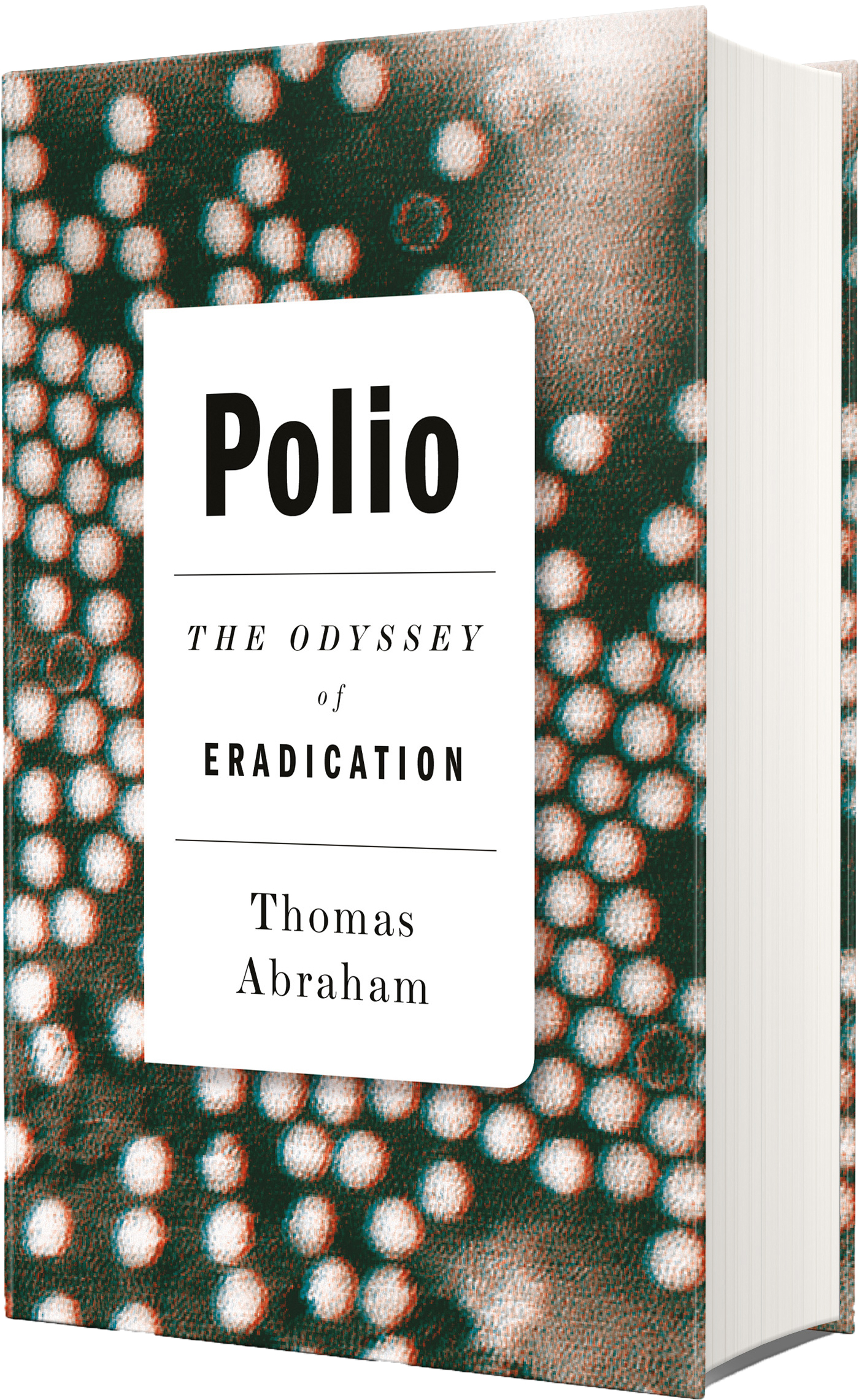Back in June, for the release of his new book, Polio: An Odyssey of Eradication, we asked our followers to send us questions for Thomas Abraham (@poliohunt). Here’s how it played out…
Q1. What do you think has been the biggest barrier of all to the polio eradication campaign?
TA Answer: Several barriers. In some places, people are suspicious of the emphasis on polio when kids were dying of other diseases. As Sabiu, a farmer in Nigeria asked me, “Why polio, polio all the time?” Also, the vaccine was not as effective in parts of India and Pakistan as it was elsewhere. War, conflict, poverty, poor quality of government also made it difficult.
Q2. What kind of frontier regime between neighbouring countries is better for polio control: a closed border like India-Pakistan, or an open border like India-Nepal?
TA Answer: I think closing borders never v effective- viruses know no borders. In this day and age, not possible to close borders permanently. Only solution is to tackle the disease wherever it is prevalent
Q3. Why do you think the polio campaign became so politicised?
TA Answer: Disease is also about politics. The geopolitics of the post 9/11 world made it easy to portray polio eradication as “western plot”. The Taliban also used the polio vaccination to gain leverage against US. The CIA’s use of the vaccination campaign to try and pin down Bin Laden didn’t help.
Q4. What made the campaign so easy for the Taliban to latch on to and use for their cause?
TA Answer: In the frontier areas of Pakistan and migrant pockets in Karachi, marginalized groups had never received anything from the government. Then free medicine for polio was repeatedly forced on them. This created suspicion which the Taliban used. The Taliban effectively fed this suspicion with arguments such as the polio vaccine being part of a western plot to render Muslim children sterile; polio vaccine was “haram”.
Q5. What did you find the most touching, emotive and/or encouraging when you were following the vaccinators?
TA Answer: The courage of poorly paid women vaccinators in Pakistan risking their lives to vaccinate children… very humbling and touching.
Q6. Given that their president was affected by the disease, do you think the polio campaign has become a vanity project for the Americans?
TA Answer: It’s not a vanity project; it began out of desire to stamp out a disease permanently; they were overconfident about how easy it would be and are now struggling to finish the job, eighteen years behind schedule. Each missed year costs almost $1M USD. Now they can’t afford not to finish the job.
Q7. What, if anything, can be done to prevent vaccine-derived polio in countries like the DRC?
TA Answer: In the DRC and elsewhere, health systems need to be strengthened and routine childhood immunisation increased. OPV needs to be replaced by IPV. Vaccine-derived polio is as big a danger as wild poliovirus even if the polio eradication campaign downplays it.
Q8. Do you think the campaign’s focus is too narrow? i.e. should it have a wider environmental focus? Should we be installing proper sewerage rather than allowing the disease to spread through open sewers?
TA Answer: Most definitely. Polio should have been tackled with other vaccine-preventable diseases, as well as sanitation. This was the original intent when campaign was launched in 1988. Now children are being protected from polio only to die of diarrhoea and other preventable illnesses.
Q9. Why, when the press is usually so unscrupulous, do you think they protected President Roosevelt and didn’t ‘out’ the reality of his polio?
TA Answer: Those were different times… the press was much more respectful of those in power. It would have been thought in bad taste to have mentioned Roosevelt’s problems. Kennedy was similarly protected by press.
Q10. Are the ethical ambiguities surrounding the campaign justified by the positive outcomes there have been?
TA Answer: This is not easy to answer; no one wants children crippled by polio, but knocking on doors accompanied by police, forcing parents to repeatedly vaccinate children would never have been tolerated in the west. The polio campaign should have followed global ethical standards.
Q11. Do you believe that the campaign will one day be a success? If so, what will a world without polio look like?
TA Answer: I believe polio will be eradicated eventually. The question really is ‘when?’. It was meant to end in 2000. The most optimistic date for the world to be certified polio free is 2021, but it could drag on longer. Campaign workers and donors are fatigued. So much went wrong.
_____________________________________________________________________________
Polio: An Odyssey of Eradication by Thomas Abraham
Hardback | June 2018 | £25.00 | 9781849049566 | 320pp
#PolioEradication
Polio: An Odyssey of Eradication is on special offer at 40% off for World Polio Day 2018. Offer available 24th October 2018 only while stocks last. All purchases are final.
